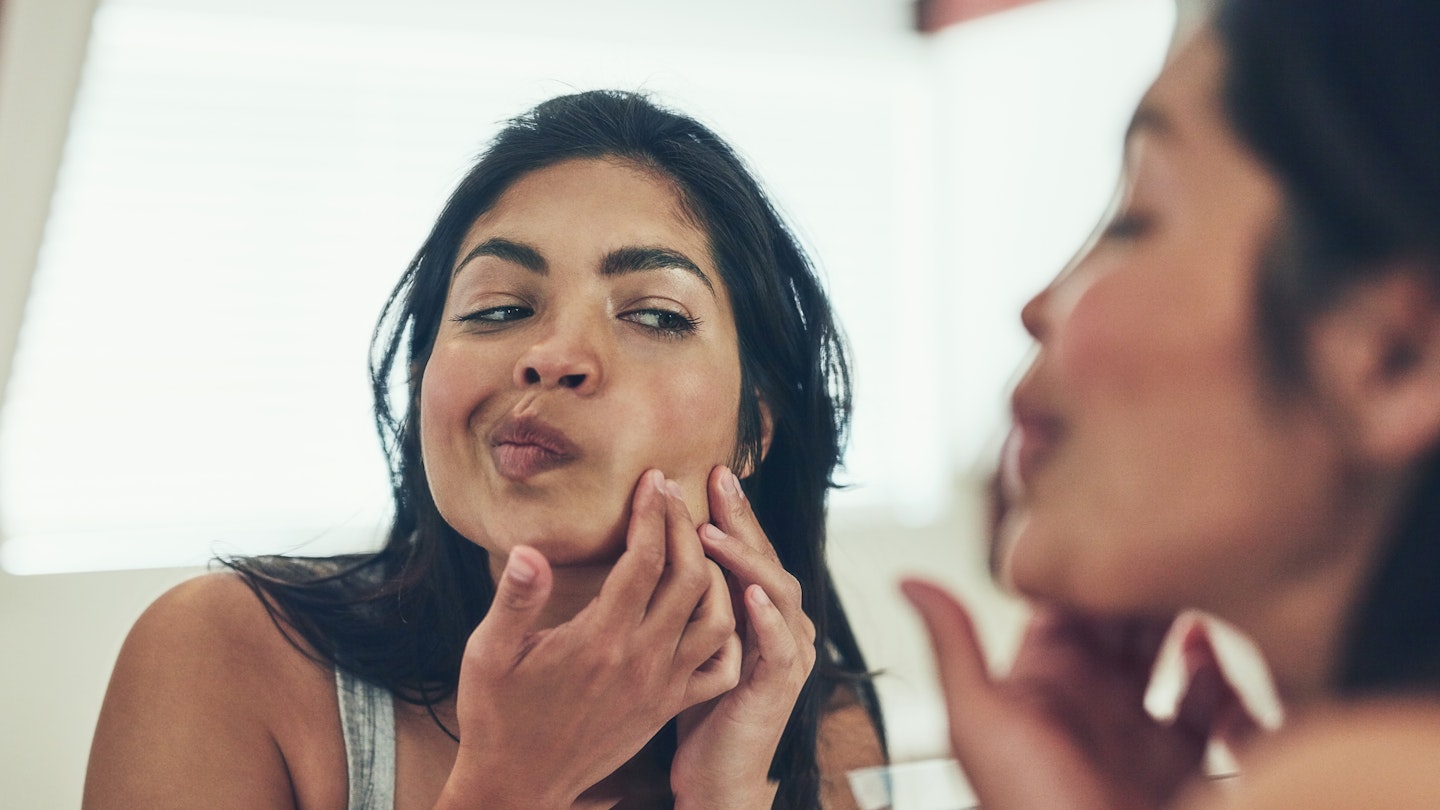Why am I suddenly breaking out? It’s a question that lots of us have been asking. In fact, according to Google, searches around this matter have spiked by a whopping 136% over the past 12 months. Be it ‘maskne’, pimples or spots – acne is currently doing the rounds with dermatologists reporting a big rise in flare-ups since the start of lockdown. And whether that’s down to stress, a change in diet or the addition of wearing a mask – there are myriad reasons for why our skin may be hell bent on defying us RN.
‘The worry of a killer disease running rampant, the stress of job uncertainty and financial worries, and the lack of normal social interaction mean that stress levels have been through the roof,’ says Dr Sophie Shotter, Aesthetic Doctor and founder of Illuminate Skin Clinic. ‘Stress in its own right is problematic for skin, causing cortisol release within the skin and breakouts, but it also has more far reaching consequences,’ she adds.
To find out exactly why our skin is breaking out, what we can do to swerve future breakouts and how best to treat current skin concerns – we’ve quizzed the experts for all their advice…
What causes spots?
As Shotter said, stress has been on the rise and is known to have a direct impact on our skin health. But it's not just stress, per se, it's also how stress can lead us to make different lifestyle decisions. 'When we are stressed we seek coping mechanisms that make us feel better through short term endorphin release,' explains Shotter, 'for some people that may be drinking more alcohol than usual, for others it might be eating junk food' (guilty on both accounts).
The effects of alcohol on the skin
'Alcohol is probably the crutch I’ve heard most people using,' says Shotter. Where the boundaries between work hours and evenings are more blurred, that first glass of wine tends to be poured a little earlier in the day. But how does it impact our skin? 'Alcohol contains sugar, and sugar is bad for skin,' explains Shotter.
'Binding to collagen and elastin fibres, sugar causes them to become brittle and to snap,' says Shotter. As we know, collagen helps skin to feel firm and supple, but the glycation process replaces this with sagging and wrinkle formation. 'Throw into the mix that alcohol dehydrates your skin, and it’s clear to see why alcohol is a problem for skin health.'
The effects of junk food on the skin
'Junk food is another problem - not just because of the excess refined sugar intake, but also through increased consumption of trans fats,' explains Shotter, 'these fats make our skin more vulnerable to UV injury, increasing our sun damage and our skin cancer risk. The high salt content in junk food can cause water retention, particularly puffiness around the eye.' What's more, the high sugar content in both alcohol and junk food can aggravate acne, rosacea and eczema.
The effects of wearing a mask on the skin
You've probably come across the term 'maskne' which refers to breakouts around the mouth and jawline that result from wearing a mask. According to Shotter, face masks can affect our skin in a couple of key ways. 'One is by causing friction in the areas where the mask makes contact with your skin. This can cause a skin irritation and sensitivity, or can cause acne mechanica - a type of acne caused by repeated rubbing,' she explains.
Number two? 'Underneath the mask there is also a very warm, humid environment which is a perfect breeding ground for bacteria. Break outs underneath the whole mask are not uncommon, especially if people are wearing heavy comedogenic make up.'
What's the best way to treat and prevent future breakouts?
Dr Zainab Al-Mukhtar, Advanced Aesthetic Practitioner and skincare expert shares her top tips and advice below:
-
Skin should be cleansed morning and evening - if you're acne prone opt for a salicylic acid-based cleanser.
-
Use a non-comodogenic moisturiser that does not clog pores.
-
Try mineral make-up as it's typically free of oil, fragrance, and preservatives, making it ideal for oily or acne-prone skin.
-
Wash make-up brushes and sponges regularly as these are a hotbed for bacteria build-up
-
Wash your mask regularly, and alternate between different masks so that you're wearing a fresh, clean one each day.
-
Wipe your phone down often and avoid holding it on your skin for long periods of time - the heat can increase inflammation.
-
Cut down on excessive sugar intake as this can inflame the skin, aggravating skin conditions such as acne and eczema.
-
Try and avoid stress. In order to reduce your cortisol level, self-care has been found to be incredibly important; try and take as much time to relax as you can and seek help from others if you need it.
SHOP: The Best Skincare Products To Treat Spots
Spot Treatments 2020
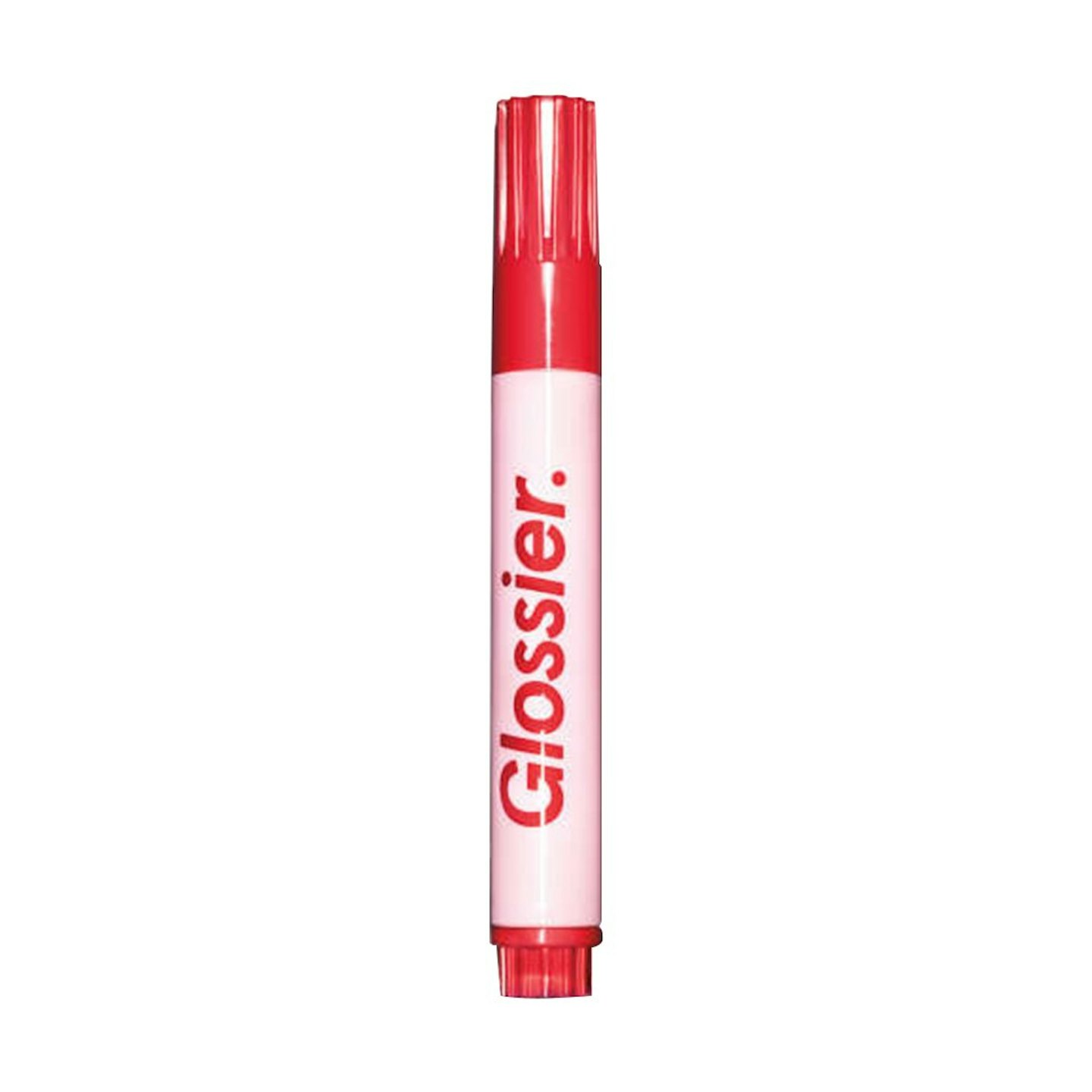 1 of 5
1 of 5Glossier Zit Stick, £12
Keep this handy stick in your handbag and apply it at the first sign of a spot - so, whenever that sore, swollen bump appears. Formulated with 2% salicylic acid to exfoliate the skin and tea-tree oil to calm the area - you'll notice the benefits in no time.
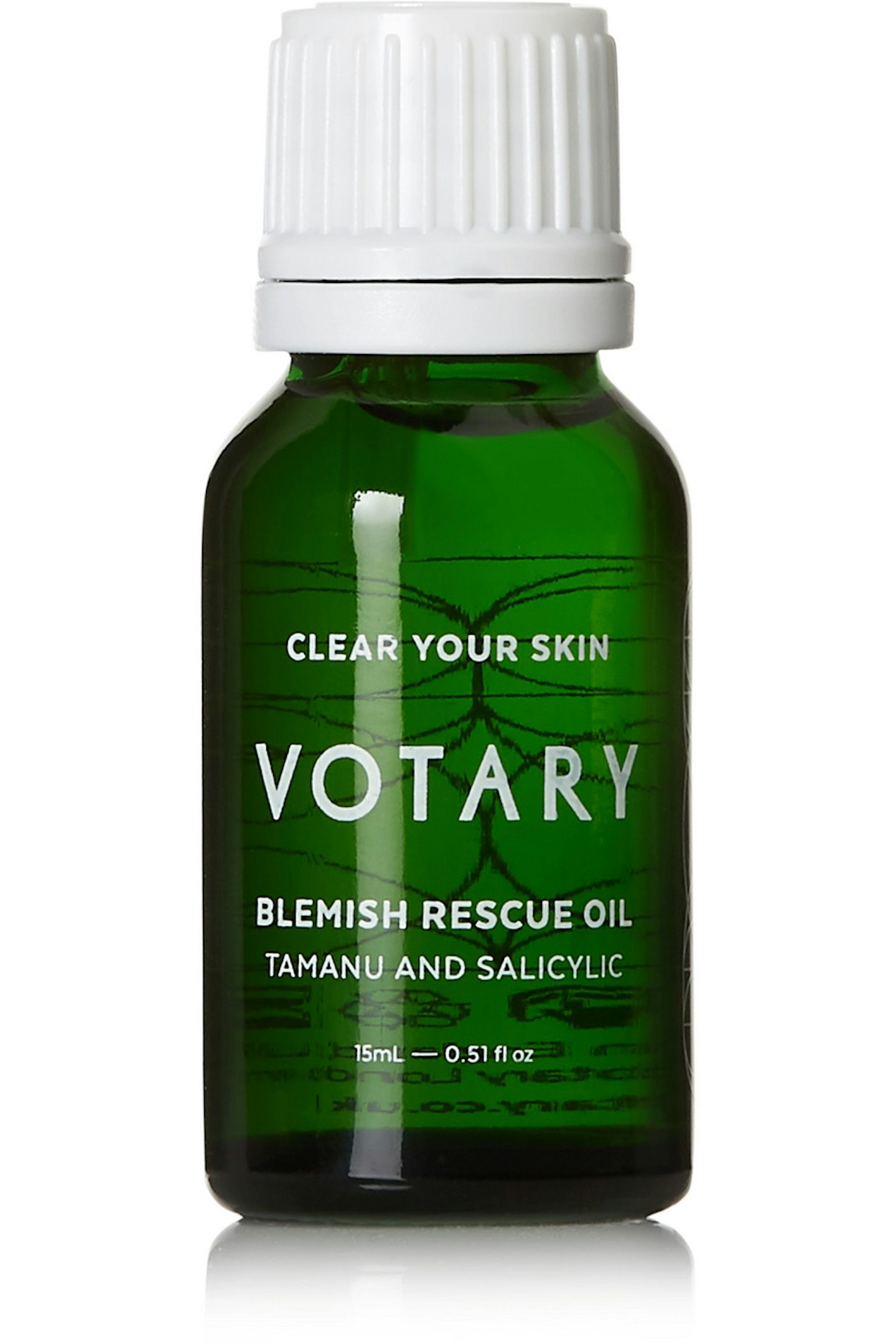 2 of 5
2 of 5Votary Blemish Rescue Oil - Tamanu and Salicylic, £35
It might sound counter intuitive to add more oil to oily skin but it can in fact help to balance the skin's mantle. This blemish oil calms irritated skin, helps to heal spots and will also treat scars.
![La Roche-Posay Effaclar Duo[+], £17](https://images.bauerhosting.com/legacy/lifestyle-images/galleries/580888efa0991aa448719c99/la-roche-posay-acne-spot-product.jpg?auto=format&w=1440&q=80) 3 of 5
3 of 5La Roche-Posay Effaclar Duo[+], £17
La Roche-Posay's anti-blemish cream is formulated to target oily, blemish-prone skin. It has become a cult product for beauty buffs who have raved about its magical ability to unclog pores, minimise imperfections and smooth skin.
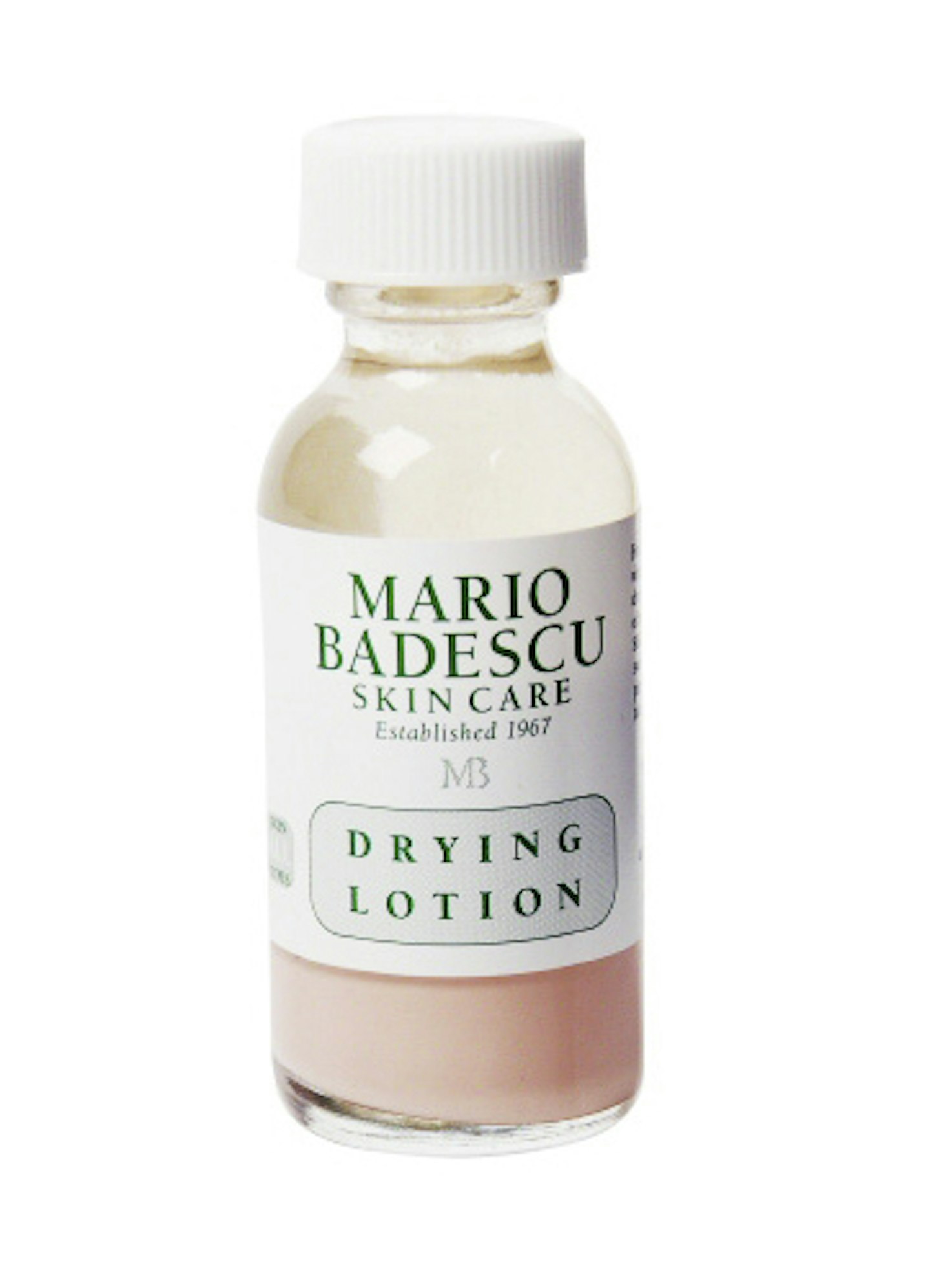 4 of 5
4 of 5Mario Badescu Drying Lotion, £13.50
This highly coveted skin elixir is not only surprisingly affordable but also promises to refresh and repair your complexion by clearing up and soothing whiteheads overnight. All Mario Badescu asks is that you dip a cotton swab into the pink sediment, dab on a pimple and wash off in the morning. Do not shake the bottle.
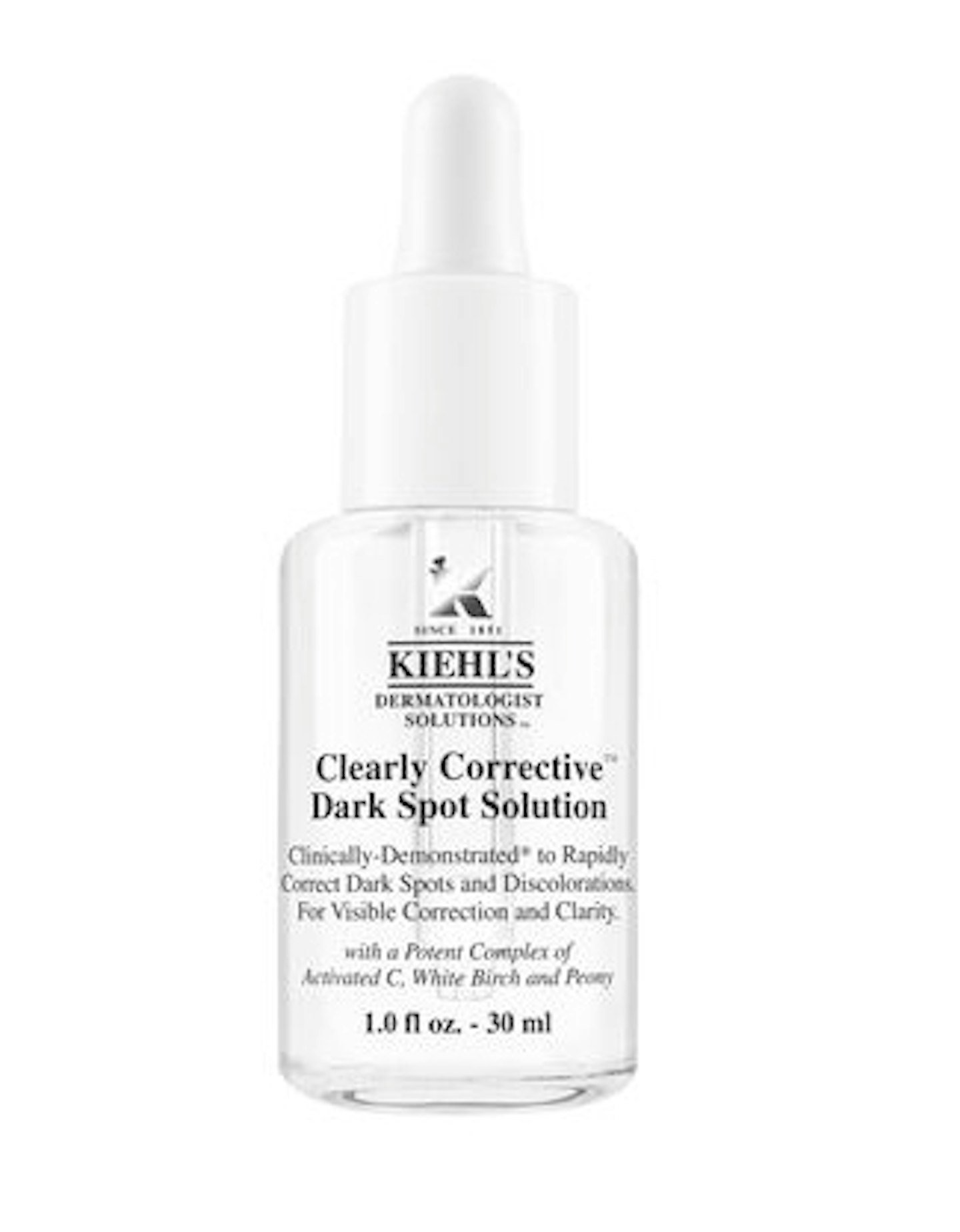 5 of 5
5 of 5Kiehls Clearly Corrective Dark Spot Solution, £38
Apply this serum onto your acne scars or discolouration after you've washed your face and before you moisturise, and overtime it will even your complexion.
READ MORE: The Very Best Products To Treat Spots And Acne-Prone Skin
READ MORE: Breakout Breakdown: What Is Actually Causing Your Spots?
